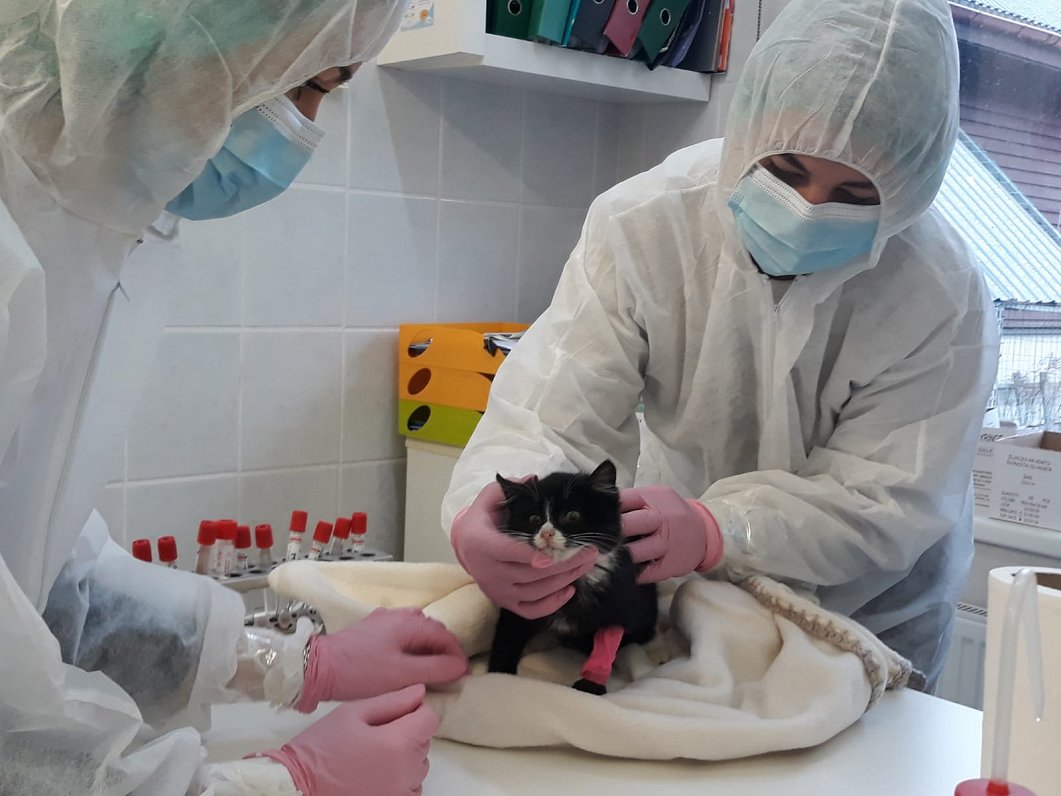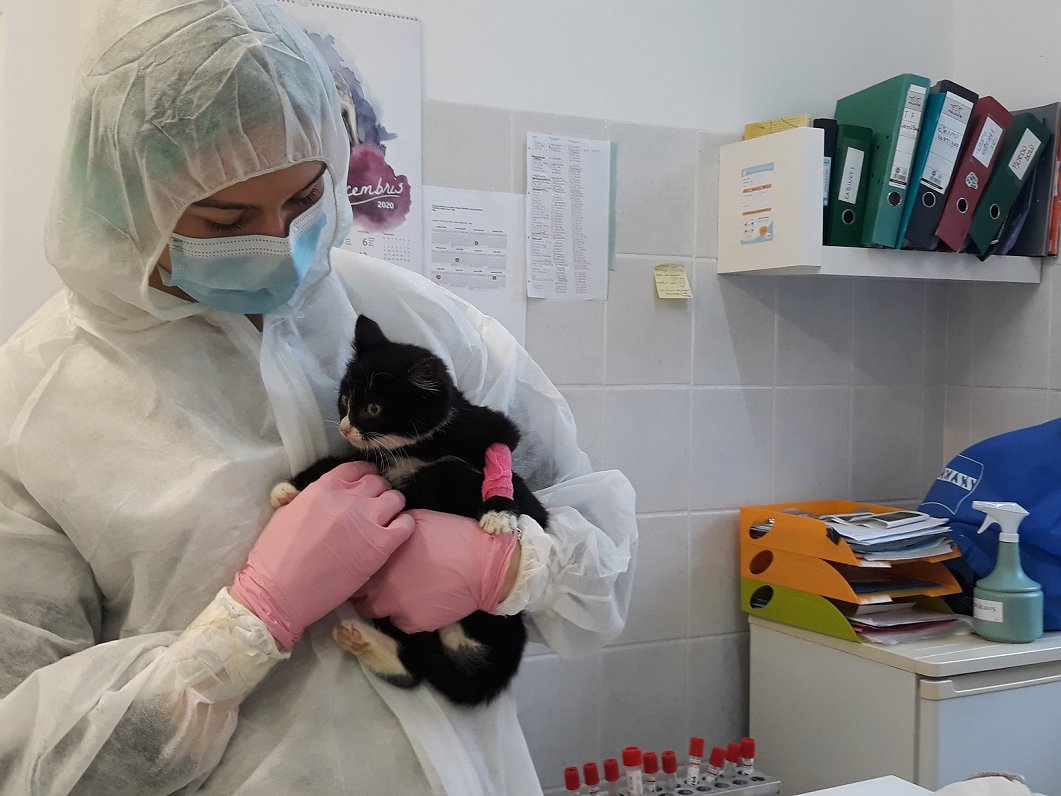COVID-19 also affects cats. Cats recuperate more quickly than humans do. Until now, a COVID-19 positive cat has not been found in Latvia, but some tests have shown antibodies. The cat is one of the most popular pets, and cats are normally in close contact with humans.
Researchers of LLU Veterinary Medicine Faculty arrived at one of the animal shelters in Riga to inspect 20 cats. Three samples shall be taken from each feline: a smear from the throat, a fecal sample, and blood to detect antibodies.

So far, the study has tested 130 cats, mostly residents of different shelters, as well as from COVID-19 positive households where people were infected.
“The first findings are that several cats have developed antibodies against the agent of COVID-19. This means that these cats have been in contact with the virus and that cats develop immune responses.
The presence of antibodies points to the fact that the cat is likely to have had COVID-19,” said Dr. Gundega Mūrniece of the LLU Veterinary Medicine Faculty.
“Cats are likely to spread this virus very briefly, because even in cases where contact with a positive person has been very close and cats show clinical signs - inflammation of the upper respiratory pathways, we have failed to detect this Sars Cov-2 RNA in cat respiratory samples. In some cases, antibodies have been detected,” said the dean of the LLU Veterinary Medicine Faculty, Professor Kaspars Kovaļenko. “But mostly this infection is self-limiting, so for 2-3 days the cat has such clinical signs and then the animal is recovering quite quickly.”
Kovaļenko said that a cat is more resistant than a human, possibly because of congenital immunity, or because of other genetic factors that scientists want to find out as part of this study.
The cat is one of the most popular domestic animals in Latvia. There are no official figures but it can be concluded from statistics that 38 per cent of households in Latvia have at least one cat. It is the second highest indicator in Europe.
“Cats are in very close contact with their humans. They are household members. And they are, among other things, a connection to a household with a foreign environment. In other words, the cat is the primary animal that we want to test,” said Dr Gundega Mūrniece.
All susceptible animal species should be tested according to the recommendations of the World Organization for Animal Health. It is not yet known whether other animals will also be tested. Worldwide studies have shown that, for example, pigs and cattle are susceptible to Sars Cov-2.





























